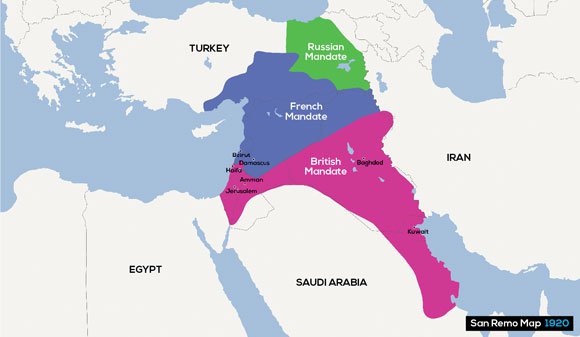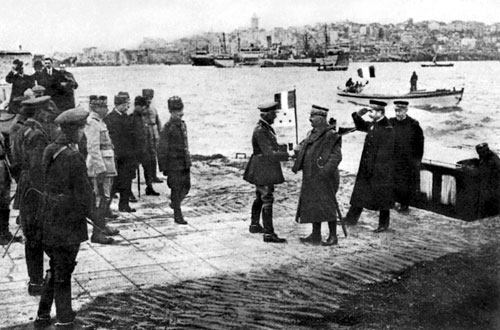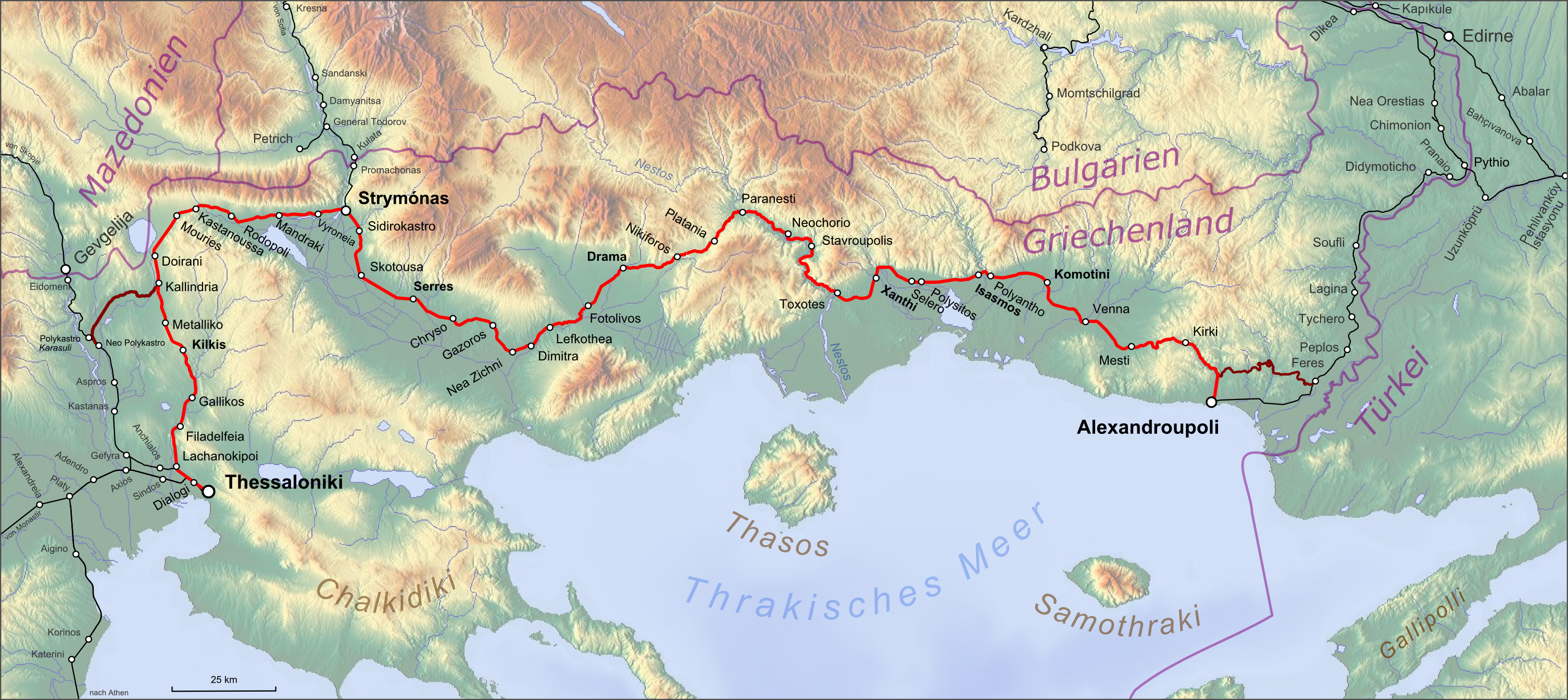//Ed. Note: In this part, the unnamed American official
expresses his outrage at Britain's policies and
machinations vis-a-vis the Arabs and the Jews.//

The Arabs
and the English
An article
was published in Egypt in the pro-English
newspaper “El-muazzam” on 7 October
1920, in which it was
stated that when Turkey entered the Great War the English
saw the chance to separate the Arabs from the Caliphate and
realize this
long-held goal of theirs. As a
consequence, Mr.
Lawrence, one of the English Orientalists, was sent to Mecca
with a significant amount of materials.
Based on a secret
agreement made between Lawrence and Şerif Hüseyin, it
was promised that Şerif Hüseyin would become the Arab
sultan, prompting Şerif
Hüseyin and his son Faisal to revolt
to achieve the Arabs’ separation from the
Turks.
British soldiers in Iraq
Propagandists
were sent secretly to Syria and
Iraq to
ostensibly promote independence
but subconsciously to
induce the populations to favor dependence on, and
occupation by, the English. These
propagandists were placed
in the assemblies and among the people in both Syria
and Iraq
and made pronouncements favoring the English. In this way,
under the pretext that the
English were the Arabs’ friend, a
portion of the Arabs were seduced to this
idea. The English
had a number of influential individuals in Syria and Iraq write
letters to England filled with
praise for the English and
concocted pleas to have England help the people in
their quest
for independence.
Yet, similar promises of independence have
been made to the
people of Egypt and India for years without realization. In
truth, those in the pro-English shadow
administrations may
promise the people independence but not even in Ireland,
where the English and the Irish are both Christians and white,
has this come to
pass because of the distinction over
Protestantism and Catholicism that has put
them at odds.
Nevertheless,
forgetting all the historical examples of
England’s famous tricks and deceits,
the Arabs have broken
off their long-time ties of religion and relations with
the Turks,
letting the English succeed in breaking up the world of Islam!
In addition, in return for billions the
English government
received from the Jews during the Great War, they made a
second secret agreement with the European Jews to give them
Palestine for a
Jewish homeland. A third secret
agreement was
signed to allow the French to have Syria. Yet, despite all these
dishonest and
underhanded actions, the English are not the
least bit ashamed!
The
Partition of Arabia
After the
English won the Great War and achieved their goals
and aims, in accordance with
the agreement they signed with
the Jews, they turned over sacred Moslem areas
like Jerusalem,
Nablus, Haifa, Jaffa, Akka, Nasiriye, Safed, Gaza and Arbeş to
the Jews. Then they gave Damascus,
Aleppo and Beirut to the
French. Iraq
became an English colony and special possession.
As a result of the English giving Jerusalem
to the Jews in
connivance with the Christians, the Moslems have staged a
number
of uprisings against the English and the Jews.
And all
the newspapers in Arabia and the Arab countries have begun to
denounce these deceitful acts aimed at the break-up of Arabia.
Right now, Arabia has become a place of hell
and an ocean of
blood!!
The
War in the Arabian Peninsula
According to
an issue of the “El Hakike” newspaper in Beirut,
Şerif Hüseyin was completely
aware of what happened to Syria,
Iraq and Palestine, which were sacrificed to
the English
government’s tricks and
deceitful acts. Hüseyin realized that
besides Mecca and
Medine, where he held sway, he had nothing
else so he nourished hopes of secret
initiatives against the
English in Arabia.
However, the English became aware of
Hüseyin’s plans and incited İbn ul
Suad of Necd to destroy
Hüseyin’s goal.
Emir İbn ul Suad defeatd İbnurReşid’s forces
near Medain Salih and El
Juni and subsequently defeated Şerif
Hüseyin’s men in a battle around Ta’if. Seeing
his
predicament and fearing the loss of all of his remaining lands,
Şerif
Hüseyin sought support from the English.
But now that
all of the Arabian peninsula has become an English colony
the
Arabs all long for the past.
The English Goal
With Regard to Islam
This is
taken from the last issue in February of the “İslam”
newspaper published in
Calcutta, India: Hey, Moslems. Hey,
easterners and Indian citizens, Gladstone,
one of the most
famous proponents of the goal the English are pursuing
against
us, gave a speech in the House of Lords, saying that “as long as
the
Kur’an is on the face of the Earth, there will be no peace in
the world.” Gladstone’s goal was the destruction of the
Islamic
world and the great mosque. But
Muhammed Ali Jinnah
and Gandhi, along with similar stalwart jihadis,
perceived the
English goal and put up a wall against it. And the Califate in
Istanbul, Islam’s
greatest point of support, has not stinted in
providing help. Let us see, when will the English statesmen
will be able to correct this crooked policy?
Islam and Eastern Revolts
Whoever
examines the newspapers published in Europe,
Egypt, India, Anatolia,
Afghanistan and Turkistan, will see
there is a great revolt underway in those
countries, as well as
in Arabia and in the Moslem countries of Russia. By
threatening England and the West, these
flames found in
the Kur’an will liberate Islam.
We are seeing that: in Egypt
the Coptics and the Moslems are united in
their revolts and
uprisings to rid their country of the English. Similarly, all
over Palestine the Moslems and
Christians have joined
together to free themselves from the English and the
European
Jews. In India, the Hindus and
Moslems have united for the
first time in India’s history by rising up and
fighting against
the English in the north and east of the country. And with
one voice the clergy is saying
“İndependence! The Great
Mosque!, Islam!, the Caliphate!” Together they want to free
themselves from
the hands of darkness that are pulling the
East and their countries towards tragedy,
by attacking the
English!
I offer this
sentence from an article in the New York
Times
entitled “The Islamic Nation and English Policy”, written by
Dr. (name left blank), a former American cabinet secretary:
“As the result of the outrage and uprisings
in Egypt, India,
Anatolia and Russia, along with the rest of the East, the East
and Islam will be liberated. When that
happens justice will
have found its place and mankind will be saved from
servitude.”
Istanbul and Lloyd
George
In issue
number 13533 of the Paris newspaper “Sefudupari”,
dated 5 September 1921, an article entitled “Lloyd George’s
Policy”
was published: “With the idea of having the entire
world submit to their will
through their avarice and
covetousness, the English, in the aftermath of the
Great War
even subjected their ally France to their tricks and deceits.
They
have put their feet up on their islands to take a rest while
they watch
everyone else weaken and exhaust themselves in
endless wars. The English want to erase all the Moslems from
the face of the Earth and, in thier voracious greed, even want
to acquire
Istanbul and the Straits. Lloyd George
invented this
intrigue of pursuing the idea of giving Istanbul to Greece, and
by having his puppet “Dwarf” Greeks there he would bring it
under his
sway.”
In another sentence, though, it
is stated that “Lloyd George
will never succeed with the occupation of Istanbul
because
300 million Moslems cannot be destroyed by Istanbul’s
occupation. On the contrary, if Lloyd George continues in
being insistant and obstinate, the flames that rise from
Üsküdar to the waters
of Australia and envelope all his
colonies will reach his own doorstep and we
won’t send our
firemen to put out the blaze!!"
//END of PART II//
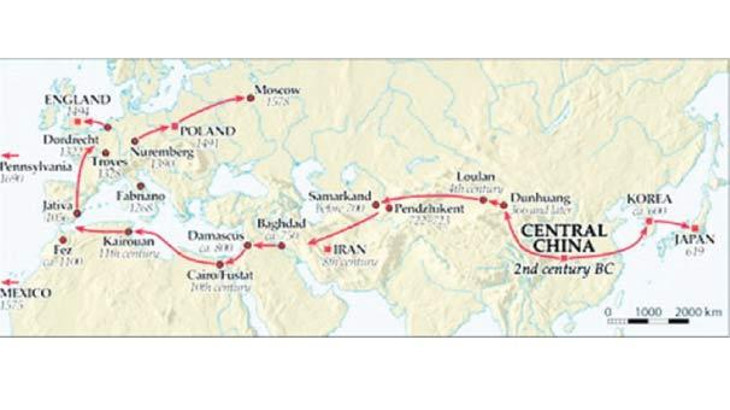

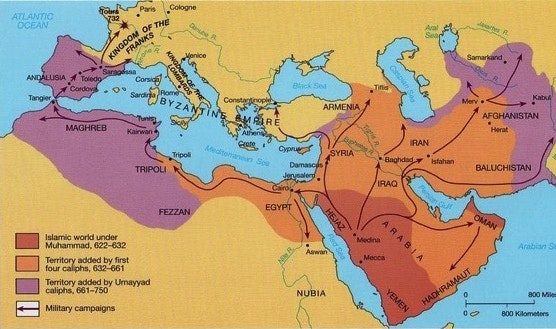

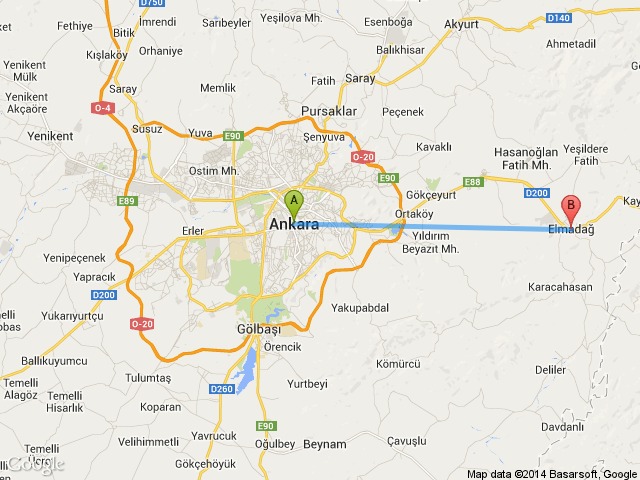

/https://public-media.si-cdn.com/filer/a2/47/a24755d3-4836-4606-aab1-065b3e03ae0c/42-26888862edit.jpg)
